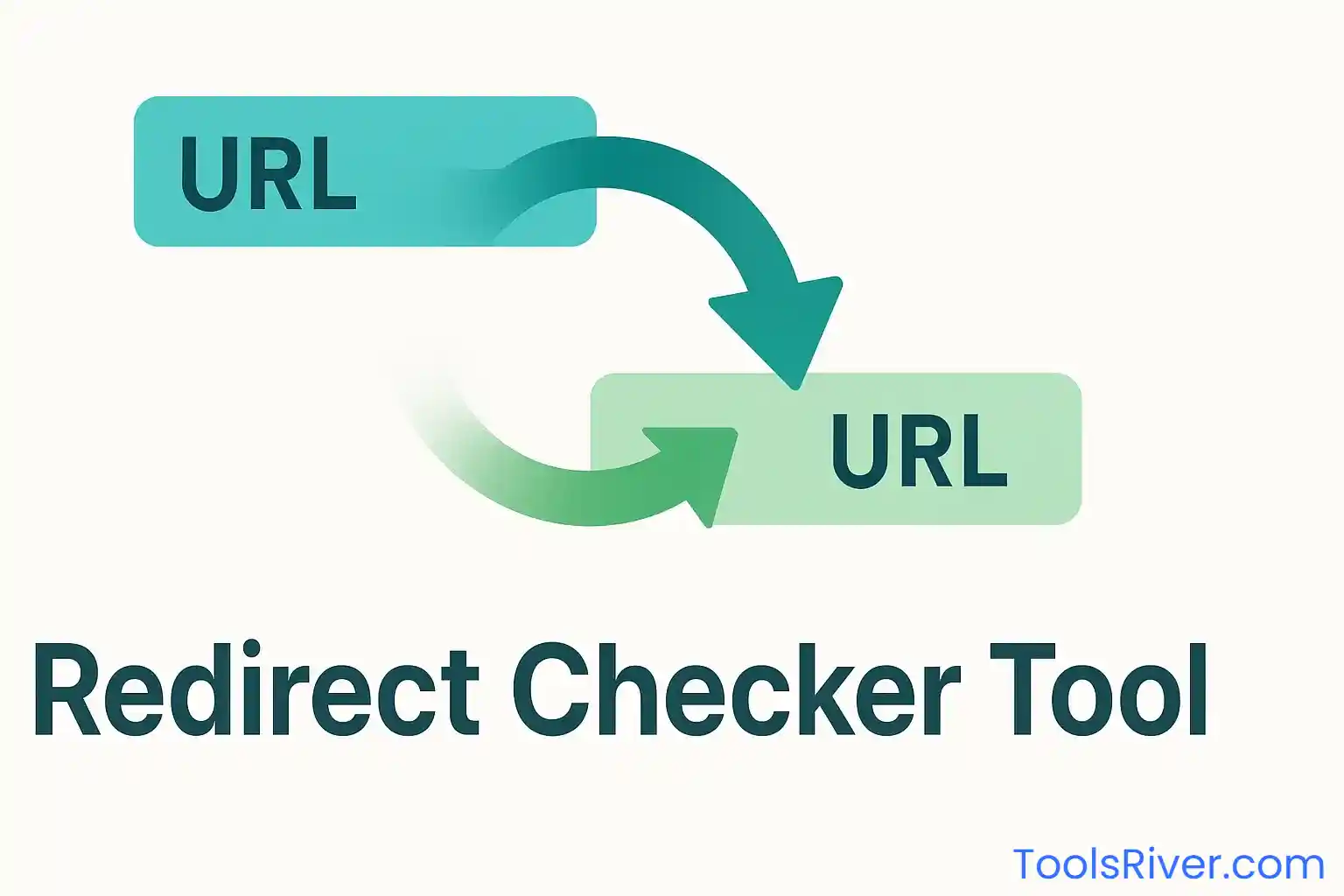
URL Redirect Checker
Created on 7 October, 2025 • Checker Tools • 40 views • 2 minutes read
A URL Redirect Checker is an essential tool that helps webmasters, marketers, and SEO experts verify the redirection paths of URLs to ensure they lead users—and search engines—to the correct destinations.
URL Redirect Checker: Ensure Your Links Lead to the Right DestinationIn today’s fast-paced digital world, link management and SEO optimization are crucial for maintaining website performance and user trust. A URL Redirect Checker is an essential tool that helps webmasters, marketers, and SEO experts verify the redirection paths of URLs to ensure they lead users—and search engines—to the correct destinations. Whether you’re monitoring backlinks, fixing broken redirects, or optimizing for SEO, understanding how redirects work can make a significant difference.
What Is a URL Redirect Checker?
A URL Redirect Checker is an online tool that allows users to check the full redirect chain of any given URL. It shows whether a page redirects, how many redirections occur, and the HTTP status codes involved—such as 301, 302, 307, or 308.
For instance, if you’ve migrated your website from HTTP to HTTPS or changed your domain name, redirects help send visitors automatically to the new address. A redirect checker ensures those links work correctly and don’t lead to errors or unnecessary loops that can harm your SEO performance.
Using this tool, you can quickly identify:
Whether a redirect is temporary (302) or permanent (301)
If there are multiple hops or loops in the redirect chain
The final landing page after all redirections
Any possible redirect errors or broken links
Why Is a URL Redirect Checker Important for SEO?
Redirects play a significant role in search engine optimization (SEO). When used properly, they preserve your page authority and traffic. However, if configured incorrectly, they can cause ranking loss, slow page loads, or even crawl issues for search engines.
Here’s why using a URL Redirect Checker is vital for SEO health:
1. Preserve Link Equity
A 301 permanent redirect passes most of the original page’s ranking power to the new URL. Using a redirect checker helps confirm that redirects are properly set to 301 rather than 302, ensuring SEO value isn’t lost.
2. Detect Redirect Loops and Chains
Sometimes, a URL redirects multiple times before reaching the final destination. These redirect chains or loops slow down website speed and waste crawl budget. A redirect checker identifies them so you can fix the issue and improve site efficiency.
3. Enhance User Experience
Broken or incorrect redirects frustrate users and increase bounce rates. By checking URLs regularly, you guarantee that visitors always land on the right page quickly and safely.
4. Improve Site Migration and Rebranding
During a domain migration or rebranding process, a redirect checker helps verify that all old URLs point to the right new pages, maintaining traffic and brand consistency.
How to Use a URL Redirect Checker Effectively
Using a redirect checker is simple:
Enter the URL you want to test.
The tool analyzes the redirect path.
Review the HTTP status codes and final destination.
Fix or optimize any detected issues.
For best results, test your redirects after any website updates, migrations, or SEO changes. Regular monitoring helps ensure your links stay healthy and your SEO performance remains strong.
Conclusion
A URL Redirect Checker is more than just a technical utility—it’s a vital part of maintaining a healthy, SEO-friendly website. By identifying redirect errors, loops, and incorrect status codes, you can safeguard your rankings, preserve user trust, and ensure seamless navigation across your site. In the competitive world of digital marketing, proper link redirection can make all the difference between a lost click and a satisfied visitor.
Categories
Popular posts
-
Number to Words ConverterConverter Tools • 83 views
-
YouTube Timestamp Link GeneratorGenerator Tools • 76 views
-
File Mime Type CheckerChecker Tools • 63 views
-
UTM link generatorGenerator Tools • 62 views
-
IP LookupChecker Tools • 60 views